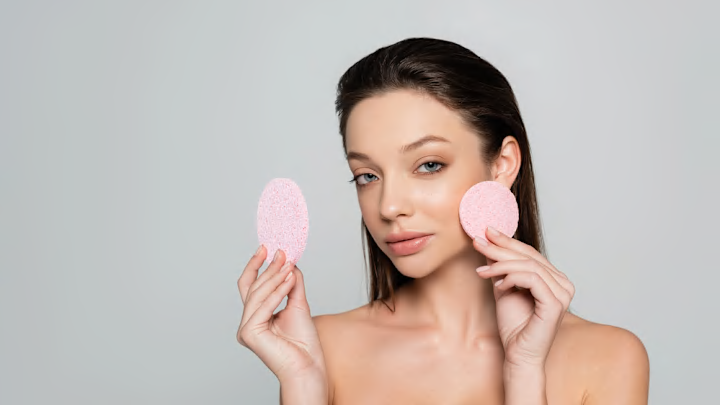What a Bare Face Taught Me About Self-Worth

I used to think my bare face was something to fix. A blank canvas waiting to be corrected, contoured, polished. I thought the circles under my eyes, the uneven skin tone, the faint scars from past breakouts were signs of laziness or imperfection—things to conceal before stepping into the world.
Makeup was my armor. I loved the creativity of it, but I also hid behind it. And when I wasn’t wearing it, I felt incomplete—like I’d forgotten part of the costume required to be taken seriously, seen, or even liked.
Then, almost by accident, I stopped wearing it.
The First Time I Didn’t Cover Up
It started with a late morning. I didn’t have time for my usual routine before a coffee run. I figured I’d just keep my head down, avoid eye contact, and get in and out. But the barista smiled at me like nothing was different. The world didn’t tilt. No one recoiled.
And somewhere between that first bare-faced outing and the weeks that followed, I began to experiment—not with a new product, but with absence.
No foundation. No concealer. Just me, in my natural, uneven, fully human skin.
At first, it felt vulnerable. Then it felt liberating.
Noticing Without Judging
Wearing no makeup made me notice my face differently. I saw the places I used to rush to correct—the small shadows, the freckles, the way my skin shifted with light and tiredness. But instead of judging them, I started observing them with curiosity, not criticism.
I began to understand that my face wasn’t something to edit—it was something to inhabit. It held my expressions, my emotions, my days. It wasn’t a performance. It was a record of being alive.
And strangely, I found myself smiling more. Not because I looked better—but because I felt less hidden.
Redefining Presentable
There’s an unspoken rule in many spaces: bare face equals “underdressed.” We’re taught that polish means effort, and effort means value. But what if showing up as yourself—unembellished, unfiltered—is a form of effort too?
Choosing not to hide takes strength. Sitting with your natural self, especially when it feels raw or exposed, takes trust. And that kind of presence isn’t less worthy. If anything, it’s deeply honest.
The more I showed up bare-faced, the more I realized how much of my worth I’d been tying to how well I could conceal myself.
It’s Not About Dismissing Makeup
This isn’t a story about rejecting makeup. I still wear it. I still love a bold lip or a touch of shimmer when the mood strikes. But now, it’s an option—not an obligation. A choice—not a mask.
What changed wasn’t my face—it was my relationship with it. The freedom to walk into a room without adjusting my reflection first. The quiet confidence of knowing I’m enough, even when I’m not “done.”
The Takeaway: Worth Isn’t Worn—It’s Remembered
A bare face taught me that self-worth doesn’t need to be applied or perfected. It doesn’t smudge. It doesn’t fade by midday. It’s already there, underneath the layers we’ve been told we need to earn it.
So now, when I leave the house with nothing on my face, I remind myself: this isn’t less than. This is me, without translation. And that is not only enough—it’s powerful.